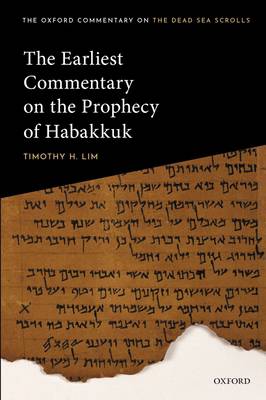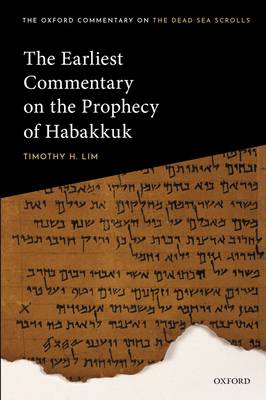
Bedankt voor het vertrouwen het afgelopen jaar! Om jou te bedanken bieden we GRATIS verzending (in België) aan op alles gedurende de hele maand januari.
- Afhalen na 1 uur in een winkel met voorraad
- In januari gratis thuislevering in België
- Ruim aanbod met 7 miljoen producten
Bedankt voor het vertrouwen het afgelopen jaar! Om jou te bedanken bieden we GRATIS verzending (in België) aan op alles gedurende de hele maand januari.
- Afhalen na 1 uur in een winkel met voorraad
- In januari gratis thuislevering in België
- Ruim aanbod met 7 miljoen producten
Zoeken
Omschrijving
This is the first major commentary in English on Pesher Habakkuk for forty years. It elucidates the nature of 1QpHab as the earliest commentary on the prophecy of Habakkuk by a detailed study of the biblical quotation and sectarian interpretation. This commentary provides a new edition of the scroll, including new readings, and detailed palaeographical, philological, exegetical and historical notes and discussion. It shows that the pesherist imitates the allusive style of the oracles of Habakkuk and also draws on lexemes, phrases, and themes from other biblical texts and Jewish sources. It shows that the pesherist identified the Kittim with the Romans who conquered Judaea in 63 BCE, and suggests that the scroll refers to several righteous and wicked figures, including the last Hasmonean high priests.
Specificaties
Betrokkenen
- Auteur(s):
- Uitgeverij:
Inhoud
- Aantal bladzijden:
- 196
- Taal:
- Engels
- Reeks:
Eigenschappen
- Productcode (EAN):
- 9780198714118
- Verschijningsdatum:
- 13/05/2020
- Uitvoering:
- Hardcover
- Formaat:
- Genaaid
- Afmetingen:
- 155 mm x 236 mm
- Gewicht:
- 439 g

Alleen bij Standaard Boekhandel
+ 370 punten op je klantenkaart van Standaard Boekhandel
Beoordelingen
We publiceren alleen reviews die voldoen aan de voorwaarden voor reviews. Bekijk onze voorwaarden voor reviews.









